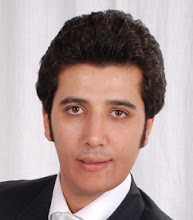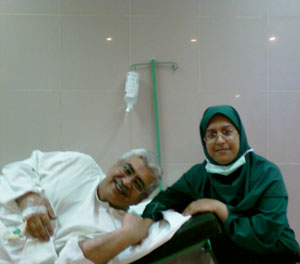 A year after President Mahmoud Ahmadinejad claimed that the general atmosphere of Iranian universities is “governed by secularism,” the ninth administration’s education minister and several other figures close to the cabinet announced progress in the plan to “Islamicize” universities under the guidance of ayatollah Mesbah Yazdi and institutions affiliated with him.
A year after President Mahmoud Ahmadinejad claimed that the general atmosphere of Iranian universities is “governed by secularism,” the ninth administration’s education minister and several other figures close to the cabinet announced progress in the plan to “Islamicize” universities under the guidance of ayatollah Mesbah Yazdi and institutions affiliated with him. In recent years, radical right-wingers and especially Mahmoud Ahmadinejad have repeatedly attacked universities for being “un-Islamic.” On one occasion, while speaking to a group of university students, Ahmadinejad denounced Iran’s modern education system for being ruled by secularism in the past 150 years, and called on students to help him revamp the country’s educational system. A few months after Ahmadinejad's remarks, ayatollah Mesbah Yazdi, who directs the Imam Khomeini Education and Research Institute, blamed weak planning in the country's affairs as well as conditions in universities while meeting with central committee members of the Imam Khomeini Relief Foundation (Komiteh Emdad Imam Khomeini), noting, “these universities don’t teach students anything other than how to badmouth the regime and at times even Islam.”
Now, following a plan devised by Mesbah Yazdi's organization, recent reports reveal that the education minister is attempting to fully Islamicize universities. At the beginning of the week, education minister Mohammad Mehdi Zahedi, who was attending the tenth grand conference of Basiji university lecturers from across the country in Mashhad alongside Ahmadinejad, commented on the administration’s plans to Islamicize universities: “Currently, several research institutes such as the Imam Khomeini Education and Research Institute [directed by extremist cleric Mesbah Yazdi] are working on this issue. The cost of the plan is not important for us, because it is the end result that matters to us.”
Denying any knowledge of the new “forced retirement of university professionals” the education minister announced that many Basiji professors had joined the country's institutions of higher education since the beginning of the tenth administration in 2005. Zahedi said, “In the past three years, many university presidents have been replaced, and most of new presidents are either members of the Basij or have shown with their actions that they are committed to and supportive of the administration.”
While those close to the Ahmadinejad administration identify “Islamicizing universities” as the “ninth administration’s concern,” universities are under pressure through the summons and detention of students, as well as dismissal, removal or forced retirement of prominent professors.
Last Saturday, Morteza Aghatehrani, who is known as the “cabinet’s ethics teacher” and is currently serving as Tehran's representative in the eighth Majlis, noted, “our concern is to Islamicize universities,” adding, “the universities' committed students are not satisfied with the culture and image of university.” A few days prior, commenting on content of university textbooks, Aghatehrani had said, “university textbooks are neither native nor Islamic.”
According to Ketabnews website, this pro-administration cleric who is now a member of the Majlis education and research committee also claimed during last Thursday’s speech at a conference that “social sciences taught in the country’s universities are western and originated in the West.”
In recent weeks, many prominent figures closely associated with the administration have lamented the un-Islamic character of Iranian universities. Minister of Culture and Islamic Guidance Saffar Harandi, compared in a speech the “Cultural Revolution” of 1980 with today’s events, saying, “At that time, our revolutionary students believed that pre-revolutionary studies should not be taught to students by the same professors who were the theoreticians of the old regime. We don’t want our universities to be the breeding grounds of forces opposed to God and his religion.”








